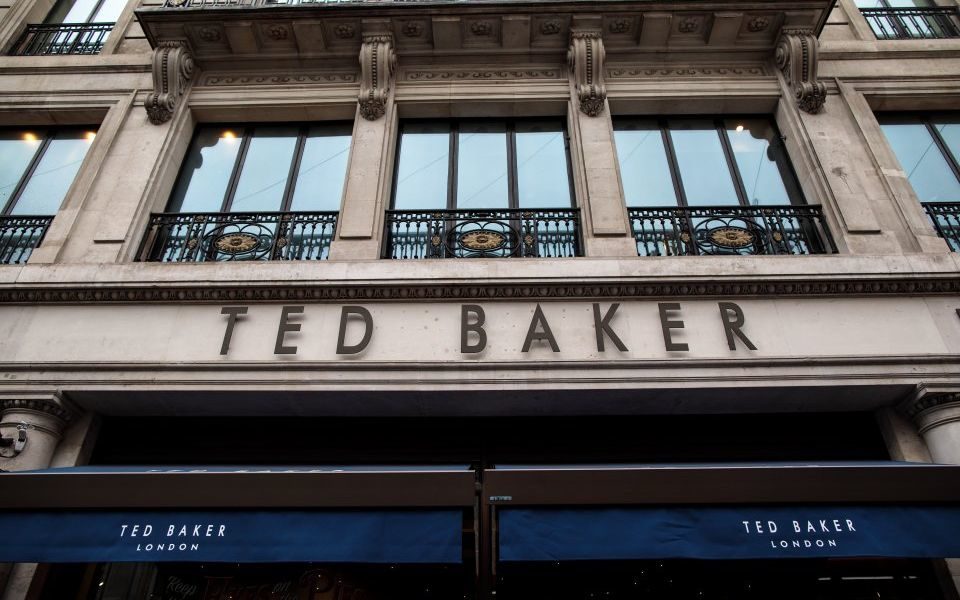Struggling fashion retailer Ted Baker has appointed accounting firm Deloitte after finding £58 million hole in their balance sheets.

Why have Ted Baker got a £58m Hole?
Preliminary investigation shave revealed the fashion retailer have overestimated their value of stock causing the hole in their balance sheet. The original investigation showed the overestimation to be around £20 to £25 million however since the calculation has now more than doubled. Shares have dropped to 288p since the revelation.
The overstatement of £58 million would actually be larger than the company’s annual profits before tax for the year January 2019 of £50.9m. Its weak financial position has also made the company consider whether a cash injection may be needed as a result of the accounting investigation. John Stevenson, an analyst at Peel Hunt, gave no indication that their current stocks had been overvalued stating that “concern is focused on the reason for the error”.
Ted Baker Concerns over Recent Years?
During the period of overvaluation in question, Ted Baker was audited by Big Four accountants KPMG who previously received a reprimand and fine of £3m due to a conflict of interest over its work with Ted Baker.
To further this Ray Kelvin, the retailer’s founder and former chief executive, resigned in March following allegation of harassment which including alleged behaviour such as kissing ears, unwanted hugs and shoulder massages. It is understood a petition was signed by 200 formed Ted Baker employees calling for an end to forced hugging.
The company’s shares reached an all-time high in November 2015 however since then shares have lost about 90% of their value, in fact their shares dropped by more than three quarters since the beginning of 2019. Ted baker has also faced struggles with sales and profitability with the retailer issuing four profit warnings in 2019. To further this Ted baker also suffered a £23m first half-year loss in more than twenty years.
Is my accountant negligent?
Accountants in England and Wales are professionally regulated by the Association of Certified Chartered Accountants (ACCA) and the Institute of Chartered Accountants in England and Wales (ICAEW). Accountants are instructed to provide trustworthy financial and taxation advise/information to individuals or companies. Your accountant could be negligent if they have for example:
- provided incompetent advice concerning tax reliefs and exemptions;
- overcharging of fees;
- incorrectly valuing a company; and
- mistakes with preparing accounts for you or your company.
What can I do if my accountant is negligent?
If you believe your accountant has made a mistake or has been negligent you should seek legal advice immediately.
Our team of specialist professional negligence lawyers can assist you with your professional negligence enquiry by reviewing your matter in detail and giving legal advice on steps that can be taken.
How do I prove that my accountant has been negligent?
In order to sue an accountant for negligence, a claimant must establish three elements to the civil standard of proof (on a balance of probabilities, i.e. it must be proved by the claimant that the financial adviser’s breach of duty caused the claimant to suffer loss).
1.Demonstrate that the accountant owed you a duty of care: the boundary lines between when a tortious duty of care is owed or not owed is subject to tests that are being continuously evolved by the courts. A duty of care exists where the accountant can be shown to have objectively assumed responsibility.
2. Establish that the accountant has breached the duty of care owed to you: proving breach will obviously vary depending on the individual circumstances of the case. A claimant needs to demonstrate that the breach shows that the accountant fell below the standards of a reasonably competent adviser in that speciality.
3. Prove that the accountant’s breach caused loss to you: you must prove both factual and legal causation. The test for factual causation is that “but for” the accountant’s breach you would not have suffered loss. Legal causation must also be proved i.e. the loss must be reasonably foreseeable at the time when the relevant duty was breached.
Book an Initial Consultation with our Professional Negligence Lawyers
Do you have a claim against a professional? If you want expert legal advice, do not delay in instructing us so we can assess the legal merit of your case.
We can often take on such claims on a no win no fee basis (such as a Conditional Fee Arrangement) once we have discussed the claim with you and then assessed and advised you on the merits of the proposed professional negligence action.
Our expert legal team of leading Professional Negligence Solicitors & Barristers can provide urgent help, advice or representation to you. Just call our Professional Negligence Lawyers on 02071830529 or email us now.
Want legal advice on the merits of your case?
Your legal enquiry goes immediately to our PN litigation team in Middle Temple, London. We can’t take on low value cases or give free legal advice – our minimum fee is £1500 +VAT for a conference with a solicitor and barrister. Call us on +442071830529.
Instruct Specialist Professional Negligence Solicitors
We are a specialist City of London law firm made up of Solicitors & Barristers operating from the only law firm based in the Middle Temple Inns of Court adjacent to the Royal Courts of Justice. Our team have expertise in advising on claims for compensation against professionals that have fallen below the standard expected, which causes clients financial or personal loss. We are experienced in bringing successful claims against negligent solicitors, barristers, financial advisers, surveyors, valuers, architects, builders, tax advisers and IFAs.
